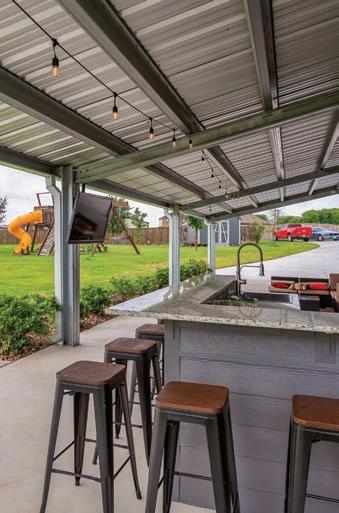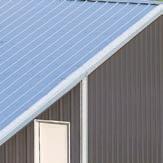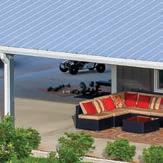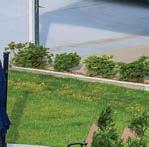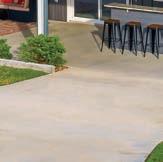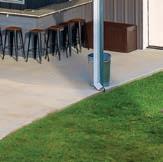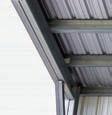Roots
Rural entrepreneurs are following in






















ABOARD THE NEW AMERICAN CONSTITUTION Explore picturesque seaport towns and quaint island villages on this 11-day Boston round-trip cruise. Discover the best of New England, while visiting Newport, Provincetown, Martha’s Vineyard, Bar Harbor, and more. Small Ship Cruising Done Perfectly®






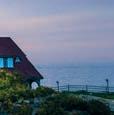







A new generation of Menard County entrepreneurs discovers their rural roots run deep.
By Addie BroylesPhotos by Scott Van Osdol
ON THE COVERLogan Bell and Geer Gillespie feed goats grass freshly picked from their felds at Low Gear Farmstead.
Photo by Scott Van Osdol ABOVE
Mike Black of Garland tears through the desert in his 2022 Corvette en route to victory.
Photo by Erich Schlegel
By W.F. Strong
The Big Bend Open Road Race brings drivers together for legal high-speed thrills.
 By Pam LeBlanc Photos by Erich Schlegel
By Pam LeBlanc Photos by Erich Schlegel

ONE HUNDRED YEARS after Yellowstone became America’s first national park, the National Park Service established Guadalupe Mountains National Park on September 30, 1972.
The park, on the New Mexico border and about 100 miles east of El Paso, includes Texas’ four highest peaks and El Capitan, a 1,000-foothigh limestone cliff.
Most of the park’s 76,293 acres were used to ranch Angora goats in the production of mohair a century ago.
Your electric cooperative is part of your community and wants you to stay safe during severe weather, which can strike with little notice. This month—National Preparedness Month—build an emergency kit to stay ready. Make sure your kit includes:
Enough food and water to last several days.
Medication, face masks and disinfectant for everyone in your household.
Pet supplies.
To learn more and bolster your family’s preparedness, visit ready.gov/kit.
Tell us how you would fnish that sentence. Email your short responses to letters@TexasCoopPower.com or comment on our Facebook post. Include your co-op and town.
Here are some of the responses to our July prompt: I feel patriotic when …
A new American tells me how happy she is to be here.
I walk into any VA clinic or hospital. Patriotic and humbled.
My 91-year-old mom tells how her father kissed the ground as soon as he got of the boat at Ellis Island in 1907.
To see more responses, read Currents online.
“ That’s the thing about books. They let you travel without moving your feet.”
—JHUMPA LAHIRI
RYAN REED GRAYSON COLLIN EC VAN ALSTYNE
TERRI ALLEN UNITED COOPERATIVE SERVICES PALO PINTO COUNTY
STELLA JOSEPHINE BANDERA EC BANDERA
You might ponder these words generally considered unrhymable: month, ninth, orange, silver and woman.

Texas’ rural population grew 2.4% between 2010 and 2020, and the state’s urban population grew 18.4% over that period, according to census data compiled by the Pew Research Center. The second-fastestgrowing metro area in the country was AustinRound Rock-Georgetown, which grew by 33% to nearly 2.3 million people. The Villages in Florida was No. 1.
WIND GENERATION in the U.S. hit a milestone March 29, when wind turbines produced more electricity than coal and nuclear plants. Natural gas is still the largest source of electricity generation in the country.

ENTER CONTESTS AT TEXASCOOPPOWER.COM

FOCUS ON TEXAS PHOTOS Nature’s Colors
RECOMMENDED READING September is National Library Card Sign-Up Month, a good time to revisit Literary Fortunes, from January 2021, which recounts the early 20th-century proliferation of Carnegie libraries in Texas.
Please note that some of the information is erroneous [Colorado’s Texas Bridge, July 2022]. Mike Bandera has not been the general manager since 2016. Also, the Royal Gorge Bridge & Park has been owned by Cañon City since 1906, when the federal government deeded the land to the city. The city has leased out the management of the bridge and park to a concessionaire, which just so happens to be based in Dallas.
Dona Webb Cañon City, ColoradoYou have such a talent for bringing history alive [Doctor’s Orders, June 2022]. Love your amazing ability to fnd such interesting subjects and your writing.
JO DAY COYLE VIA FACEBOOK JUDITH FONTENOT GUADALUPE VALLEY EC NEW BRAUNFELSChair Kelly Lankford, San Angelo • Vice Chair Neil Hesse, Muenster Secretary-Treasurer Avan Irani, Robstown
Board Members Dale Ancell, Lubbock Julie Parsley, Johnson City • Doug Turk, Livingston • Brandon Young, McGregor
Mike Williams, Austin
Our son and his girlfriend climbed to the top of Guadalupe Peak a couple of years ago [Can’t Top This, July 2022]. While at the top, our son dropped to one knee and asked his girlfriend to be his wife. She stated later, “I went up a girlfriend and came down a fiancé.”
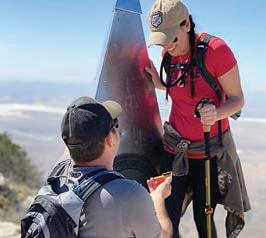 Karen Morley MidSouth EC Huntsville
Karen Morley MidSouth EC Huntsville
I look forward to receiving my Texas Co-op Power each month. I was particularly anticipating the June issue because I knew there would be wonderfully educational articles about Juneteenth. I was extremely disappointed to see not even one article focused on this important occurrence in our Texas history.
Editor, Texas Co-op Power 1122 Colorado St., 24th Floor Austin, TX 78701
Please include your electric co-op and town. Letters may be edited for clarity and length.

TEXAS CO OP POWER Volume 79, Number 3 (USPS 540-560). Texas Co-op Power is published monthly by Texas Electric Cooperatives (TEC). Periodical postage paid at Austin, TX, and at additional ofces. TEC is the statewide association representing 75 electric cooperatives. Texas Co-op Power’s website is TexasCoopPower.com. Call (512) 454-0311 or email editor@TexasCoopPower.com.
SUBSCRIPTIONS Subscription price is $4.44 per year for individual members of subscribing cooperatives and is paid from equity accruing to the member. If you are not a member of a subscribing cooperative, you can purchase an annual subscription at the nonmember rate of $7.50. Individual copies and back issues for the previous 12 months are available for $3 each.
Mike Ables, Bellville
Matt Bentke, Bastrop • Marty Haught, Burleson Gary Miller, Bryan • Zac Perkins, Hooker, Oklahoma
John Ed Shinpaugh, Bonham Rob Walker, Gilmer • Buf Whitten, Eldorado
Vice President,
Chris Burrows
Nejtek
Sproull
Dal Santo
POSTMASTER Send address changes to Texas Co-op Power (USPS 540-560), 1122 Colorado St., 24th Floor, Austin, TX 78701. Please enclose label from this copy of Texas Co-op Power showing old address and key numbers.
ADVERTISING Advertisers interested in buying display ad space in Texas Co-op Power and/or in our 30 sister publications in other states, contact Elaine Sproull at (512) 486-6251. Advertisements in Texas Co-op Power are paid solicitations. The publisher neither endorses nor guarantees in any manner any product or company included in this publication. Product satisfaction and delivery responsibility lie solely with the advertiser. © Copyright 2022 Texas Electric Cooperatives Inc. Reproduction of this issue or any portion of it is expressly prohibited without written permission. Willie Wiredhand © Copyright 2022 National Rural Electric Cooperative Association.
Prized Fibers
“
Picking cotton was the hardest job I’ve ever done. I did get to ride with my dad to the cotton gin, though—a real treat.”JULIA ROBINSON COURTESY KAREN MORLEY






























A new generation of entrepreneurs in Menard County learns their rural roots run deep

When Sarah and Luke Johanson inherited her family’s homestead outside Menard about five years ago, they had no idea how they were going to fit in.
The couple met in Los Angeles while pursuing acting careers, and they were living in Massachusetts when they started the process of moving to rural Texas.
“We thought, ‘We’re moving back there, but how are we going to survive there?’ ” Sarah Johanson says. Menard—a town of about 1,500—is an hour southeast of San Angelo.
Johanson’s grandfather had been the football announcer for Menard High School for 30 years, but, she says, “we’re not the normal type of folks who live here.”
Logan Bell had a similar thought. Bell’s family roots go way back in Menard, but the Odessa native lived on farms in Italy and England after college before settling in Fort Worth.
During Bell’s childhood, the Bell family would visit Menard a few times a year to shear sheep that roamed the family land. When Bell’s mom inherited the property in the mid-2010s, Bell and partner Geer Gillespie decided to turn their dream of becoming homesteaders into a reality.
“Before we moved here, we thought we would be the only people like this out here,” Bell says. “We were prepared to be the isolated weirdos.”
But Menard is a small town with a long memory. And these transplants and others came to discover their roots are more intertwined than they expected.
Not long after Bell and Gillespie moved into a dilapidated
OPPOSITE From left, Menard farmers Sarah Johanson, Logan Bell and Amie Prest gather in the pecan grove at Bell’s Low Gear Farmstead. INSET Close-knit friends who called themselves the Angels have descendants who have returned to Menard and formed friendships of their own.
Sarah Johanson’s youngest daughter, June, feeds goats at Johanson Farm, which produces seasonal produce, baked goods and roasted cofee.

farmhouse, the couple stopped for a meal at the Lazy Ladle Cafe in downtown Menard, where Sarah Johanson’s mom worked. “She told us we had to meet Sarah and Luke,” Bell says.
Bell looked up Sarah Johanson on Facebook, and they started chatting, but it wasn’t until Johanson started digging through old photo albums that she discovered that she and Bell shared more than a budding friendship.
The subjects in one photo were a group of close-knit friends in Menard who called themselves the Angels. Among them were Zella Williamson and Winnie Lois Wilkerson, Johanson’s grandmother and Bell’s great-aunt.
“Sarah sent me that photo and said, ‘Is that person related to you?’ I was like, ‘oh, oh, oh,’ ” Bell says. “We knew we had a connection, but then we realized we were sort of related.”
As it turns out, Johanson and Bell aren’t the only descendants of the Angels who have returned home to Menard.
Hannah Beall’s grandmother, Betto, was also part of the group that lived in Menard when it was a bustling livestock town in the 1940s and ’50s.
Beall was born in Austin and moved back to her mother’s hometown while she was in elementary school. She made friends but never quite lost that outsider-looking-in perspective. Now she works for an Austin nonprofit and runs her own preserved foods business called Han Can.
Beall makes big batches of the preserves and delivers them to customers in Menard, a place she remembers didn’t have much fresh produce when she was a kid.
“I always feel closely connected to my ancestors when I’m in Menard,” she says. “But it’s more of a longing to have known them more or better.”
One of the first products Beall sold was her great-greatgrandmother’s chowchow, a savory mix of green tomatoes, peppers and cabbage. “Canning is a lost art these days,” Beall says. “We don’t have a lot of family traditions and passeddown recipes, so Oma’s chowchow felt like such gold.”
For Beall and others in Menard, it’s not about recreating what once was. It’s about imagining something new that is connected to what came before.
“Instead of moping that I don’t have any culture, I get to start new traditions and fill in these gaps in the history where I can, even if I have to make it up,” Beall says.
Menard County’s current generation of food producers used to gather on Saturdays for a small farmers market in Menard, but since the pandemic started, most of the local vendors have been selling at the year-round farmers market in Junction, about 30 minutes south.
One of the biggest hits at the market is Texas Scratch Kitchen, the Prest family’s cottage baking business. Amie and Joe Prest and their five children have lived in Menard for nearly a decade after starting their family in Germany and England, where Joe is from. Amie grew up in Menard—her ancestors were among the founding families—and, like Bell and Johanson, didn’t have plans on returning, but that changed after visiting her grandmother in 2011.
“When a piece of heritage has been in your family for that long, it’s both a blessing and a curse,” says Amie, a member of Southwest Texas Electric Cooperative. “There comes a time when you have to commit: Are you going to come back, or are you going to stay away?”
They settled on a piece of land along the San Saba River, and their passion for European-style baking continued after they moved to Texas. A few years ago, they decided to turn it into a family business, making macarons, tarts and tiramisu to sell at the market.
“You go out into the world and gather seeds of knowledge from all over and then you get to decide where to plant them,” Amie says.
Menard County, with its persistent drought and extreme temperature swings, isn’t ideal for vegetable farming, but each of the not-so-newcomers has found their own way to make it.
At Low Gear Farmstead, Bell and Gillespie have focused on raising goats, chickens, ducks and turkeys, mostly for their own use, but their biggest source of revenue has come from a high-tech solution to a rural issue: Hipcamp, a website that connects landowners with people who want to camp.
Since 2017 the couple has hosted hundreds of campers in the pecan grove along the San Saba River that cuts along the back of their property, taking care to be inclusive of people of color and members of the LGBTQ community.
After five years of hosting visitors on their land, Bell says they realized they offer something that can’t be measured by the pound.
“What we can offer more easily than anything else is a social ecosystem,” Bell says. “Yeah, we’re trying to grow food, but that social ecosystem that we can create is perhaps more important and more readily available.”

What’s happening in Menard reflects similar changes happening across Texas, as farm and ranch land changes hands and a new generation of homesteaders plants roots.
Sarah Johanson, who had a small recurring role on the TV show Mad Men years ago, says that as a girl growing up in Menard, she didn’t see anyone who was living a life that she wanted to live—namely, anyone making a living as an artist. “People said, ‘You’re not going to be able to survive at this,’ ” she says. “A big part of moving back was to show young people here that football isn’t the only thing. Art is absolutely something you can make money in.”
Now that they’ve been back for a few years, Johanson has spent time in the local archives researching the history of the area. One particular detail stood out.
“The Native Americans who lived here called it ‘Summerland,’ ” she says. “They said that once you taste the waters of the San Saba, you will always come back.” D
CLOCKWISE FROM ABOVE The Prest kids plant seedlings for Texas Scratch Kitchen, the family’s baking business. Sarah Johanson and daughter Juliet make bread in the family home where Sarah’s grandmother taught her to bake bread. Bell and Geer Gillespie visit their Galiceño horses, a breed that originated in Spain and arrived in the Americas in the 1500s.
“You go out into the world and gather seeds of knowledge from all over and then you get to decide where to plant them.”




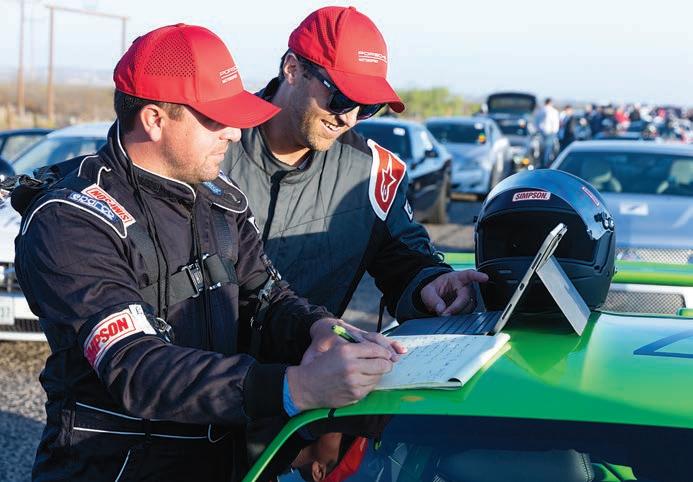
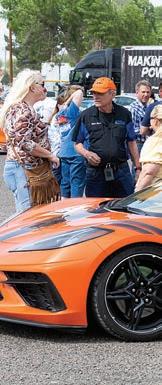
The April edition of the 2022 Big Bend Open Road Race starts with a warning to drivers: Buzzards are perched on a bridge along the twisty course.
The big carrion-eating birds—along with blown tires, overheated engines, assorted roadkill and the occasional wandering wildlife— pose a real threat during the race, which unfolds down a 59-mile stretch of mostly two-lane asphalt that slices through the desert between Fort Stockton and Sanderson in far West Texas.
Old-timers will tell you about the time a buzzard exploded through the windshield of a car (no one was hurt, but the bird didn’t fare well) or when wayward javelinas strolled onto the road. There have been blowouts and skid-offs but, so far, no serious wrecks.
The buzzard warning ripples through the line of about 160 vehicles along U.S. Highway 285 awaiting the race start. In a few minutes, the first car screeches away.
The Big Bend Open Road Race is the common man’s Indy 500. Anybody with a driver’s license and a properly equipped vehicle can pay the entry fee (which ranges from $650 to $1,050, depending on class) and compete. Most teams will tell you they come because they like to go fast. Officials shut down the highway for 12 hours, and the rubber burns.



This year’s field features a stable of sleek Corvettes, a few Teslas, a herd of Mustangs, some Camaros, Porsches, Miatas and a Mini Cooper—plus a 1962 Chevrolet pickup truck and a 1970 Chevelle. In years past, junkers and rentals have also lined up at the start.
Competitors pick a class based on the speed they think they can average over two runs, a tricky feat to pull off. The fastest car doesn’t necessarily win, except in the “unlimited” division, in which the flat-out fastest driver gets the trophy. In other classes, drivers who come closest to their target average speed take top honors. And drivers can’t slow more than 30 mph below their target speed on straightaways, which prevents them from racing along and then coasting into the finish. The rule is enforced by radar.
The best teams come within a few hundredths of a second of their goal.
“If I don’t giggle and laugh when I drive that fast, something’s wrong,” says Tracy Alexander, who is zipped into a pink and black fire suit as she leans against her 2015 Corvette Stingray, waiting her turn. Participants are required to wear a fire suit, helmet and gloves.
The BIG BEND OPEN ROAD RACE brings drivers together for legal high-speed thrills
The vehicles take off one at a time, and it takes about three hours to launch the whole field. Then they do it again for the return trip. “I’ve just always been a speedster,” Alexander says. “My dad had Corvettes when we were growing up, and when you’re behind the wheel of a Corvette, it seems like you should push it a little bit. It’s the thrill of it, really, and the adrenaline rush. Some people jump out of airplanes; I drive fast.”
She and her husband, Fort Stockton Mayor Joe Chris Alexander, used to help behind the scenes at the race, which began in 1998. But when a friend’s partner bowed out a few years ago, she jumped in.
“I always thought it would be fun to race because I like to drive fast, and that would be a legal way to do it,” Alexander says.
That first year, she drove the first leg of the race and navigated the second alongside teammate Arno Pitzen of Kingsland. They finished second in their class.
“I’ll never forget that first time,” Alexander says. “You hold your breath, and I said a prayer—‘Lord, let me cross at the right time.’ It’s the biggest adrenaline rush. You’re not racing anyone but yourself. You’re racing your own ability.”
This year she navigates and Pitzen drives. They finish third in their class, just six-tenths of a second off their target time.

Once an annual spring event, an October race was added last fall (October 15 this year). The race is the only one of its kind in Texas, although similar events are staged in Nebraska and Nevada. Registration typically fills up within 15 minutes, and a waitlist 40 deep forms, said race coordinator Crystal Lopez.
“It’s an opportunity for these guys to come out and push close to their limits,” says race director Randy Dustin.
In the week leading up to the race, school kids in Fort Stockton fashion race cars out of cardboard boxes, and drivers parade through downtown in their vehicles. This year organizers added a screening of Cannonball Run, the 1981 comedy starring Burt Reynolds, Farrah Fawcett and Roger Moore.
That very movie once inspired John Binns to get into the sport. The former Texan who lives in Sydney, Australia, stores several cars in nearby Alpine specifically for the event. He brought Kelli-Ann Robinson with him from Australia
to serve as navigator this year while he drives his purple 2010 Dodge Challenger. He’s only here to have fun.
“I just drive as fast as I can, and I turn off the air conditioning so I can go faster,” Binns says.
Some drivers scout the course ahead of time, using old-fashioned tools. Others rely on high-tech gadgets and GPS to hit their targets.
“Everybody has their secrets,” says Travis McRae of Kerrville, a Central Texas Electric Cooperative member. “I like the technical part of it. I can drive anywhere fast, but out here you have to be spot on.”
Charlie Friend, 82, of Pahrump, Nevada, a former U.S. Air Force fighter pilot who has raced in every class and won the unlimited category one year, also does everything manually—punching a stopwatch and scrolling through a paper route chart as he drives the course. “More and more people now use magic stuff, like computer systems,” Friend said.
After this year’s race, teams gather in Fort Stockton to swap stories. A father-daughter duo from San Antonio dances a jig by their car. Sweaty racers eat barbecue from a food truck. Brothers Mike Smith from Blanco and Mark Smith of Longview crack cans of cold beer and hash over their performance.
“We know we were too fast,” Mike Smith says, and race results later confirm they crossed the finish line nearly 22 seconds too soon in the 150-mph class, completing the 118-mile sprint in just over 47 minutes. That doesn’t matter much to him. “All the guys out here have a common interest. We all enjoy tinkering with cars, and this is kind of like a reunion.”
And those buzzards? Friend, the former pilot driving a Cadillac CTS-V, spots some along the course. They don’t cause any problems.
“I just flashed my light and tooted the horn, and they moved,” he says. D
“ I just drive as fast as I can, and I turn of the air conditioning so I can go faster.”









Texas Department of Agriculture | Commissioner Sid Miller | TexasAgriculture.gov

Down in the Gulf, dedicated fishermen play a Texas-sized part in getting the best quality seafood to your plate. So sauté that snapper. Grill that grouper. Blacken that drum. Your favorite finfish is harvested with pride from the tides of the Lone Star State.



Electric cooperatives aren’t like other utilities—as a consumer and member, you own a portion of the business. And one benefit of that membership involves the allocation of excess revenue, called margins, in the form of capital credits. The retirement of capital credits is the tangible demonstration of your ownership in Magic Valley. As a memberowned cooperative, MVEC operates as a not-for-profit utility. This is accomplished through the retirement of capital credits. This year your board of directors has approved to retire $5.5 million of capital credits to those consumer-members who received electric service in 2000 and a portion of capital credits in 2020.
Electric co-ops, like Magic Valley, operate at cost— collecting enough revenue to run and expand the business but with no need to raise rates to generate profits for distant shareholders. When Magic Valley has money left over, those excess funds are allocated back to you and other members as capital credits. When the co-op’s financial position permits, the co-op retires, or pays, the capital credits to members in the form of a check. Even more impressive is the fact that MVEC was the first cooperative in the Nation to retire capital credits to its members.
Before distributing the capital credits, your board of directors at MVEC must first consider the financial condition of the cooperative and the needs for capital funds for the coming years. The percentage figure used to calculate the annual retirement of capital credits, determined by your board of directors, is set at a level that maintains the financial integrity of the cooperative.
Allocating and retiring excess revenue to members helps distinguish cooperatives. We’re proud to support our communities by putting money back into the local economy—and into the pockets of those we serve. It makes our business model special.
in current disbursement: 2000 and a portion of 2020 All-time total refunded: $85 million
The retirement of capital credits—so called because members provide capital to the cooperative for it to operate and expand—depends on the co-op’s financial status. MVEC holds on to allocated capital credits to cover emergencies, such as natural disasters and other unexpected events, and expand its electric system, which may require large-scale construction of poles and wires. This action decreases the need to raise rates or borrow money to pay for the infrastructure. After many years, if financial conditions permit, MVEC may decide to retire a set amount of capital credits.
Retiring capital credits is just one more way MVEC is looking out for you.

Magic Valley Electric Cooperative recently allocated 2021 capital credits to each member’s capital credit account in accordance with its Capital Credit Policy. Capital credits are the total revenues less the total expenses of the Cooperative for the year. Each fiscal year, the Cooperative determines the capital credits for that year and allocates capital credits to each member’s capital credit account based on the member’s bill for that year. Capital credits for each member in 2021 were calculated by multiplying the member’s yearly bill of 2021 by 0.0618771891543543. To compute your allocation from the cooperative for 2021 simply multiply your total annual bill for energy (consisting of customer charges, energy charges and power cost adjustments, excluding taxes) by 0.0618771891543543. For example, if your annual bill totaled $2,000, you multiply $2,000 by 0.0618771891543543, resulting in $123.75 as your 2021 capital credit allocation. Magic Valley Electric Cooperative has returned to members all capital credits from 1937 to 1999 and partial capital credits from 2000 to 2019. In 2022, Magic Valley Electric Cooperative will return all remaining 2000 capital credits and a portion of capital credits for 2020. If you have any questions concerning this calculation, please contact any of the Magic Valley Electric Cooperative offices. This article is intended to serve as an official notice of capital credit allocation for 2021.

We have provided answers to some questions for a better understanding of capital credits.
Allocated capital credits appear as entry on the permanent financial records of the co-op and reflect your equity or ownership in MVEC. When capital credits are retired, a check is issued to you, and your equity in the co-op is reduced.
You will receive an allocation notice annually, after the financial books for the previous year have been completed.
The amount of capital credits you earn in a given year is based on the amount of capital you contribute to the co-op through payment of your monthly bills.
The more electric service you buy, the greater your capital credit account – although the percentage will remain the same. The sum of your monthly bills for a year is multiplied by a percentage to determine your capital credits.
What do I have to do to start accumulating capital credits?
Capital credits are calculated by MVEC for every member that purchased electricity during a year in which the utility earned margins. No special action is required to start a capital credit account. Your membership activates your capital credit account.
The percentage of your total payment that is allocated as capital credits varies from year to year, depending on the success of the co-op.
Capital credits are only allocated for a year in which MVEC earns margins. Since capital credits are a member’s share of the margins, no credits are allocated for a year with no margins.
Do I have to be a member for an entire year to earn capital credits?
No. Capital credits are calculated based upon a member’s monthly bills. If you are billed for service for even one month, you will accumulate some capital credits if MVEC earned margins in that year.
What happens to the capital credits of a deceased member?
The capital credit checks are issued in the name of the deceased estate or beneficiary, once that person has been identified.
Not necessarily. The board of directors must authorize a retirement before you receive a check. When considering a retirement, the board analyzes the financial health of the cooperative and will not authorize a retirement if Magic Valley cannot afford it.
They remain on the books in your name until they are retired. You should ensure that MVEC has your current mailing address.
Do you want to save money and electricity but have limited time, money, and patience? A typical American family spends around $2,000 per year on their home energy bills, according to the Department of Energy. Much of that money is wasted through leaky windows and ducts, old appliances, or inefficient heating and cooling systems.
Luckily, there are several effortless ways to save energy without a substantial commitment of time and money. These efforts will help you save whether you own or rent an older or newly con structed home. And you will not have to hire a specialist or call in a favor from someone who is handy with tools to help you.

Improving the envelope of your home is a good place to start. Sunlight, seasonal temperature changes, and wind vibrations can loosen up even a tightly sealed home, increasing air leak age. Doors and windows may not close tightly, and ductwork can spring leaks, wasting cooled and heated air.
By placing weatherstripping and caulk around windows and doors you can keep cool air inside during warm months and prevent chilly air from penetrating the indoors during colder months. Sealing gaps around pipes, dryer vents, fans and out lets helps to seal the envelope and creates greater efficiency.
Replacing incandescent bulbs with LEDs can make a significant difference and is one of the fastest ways to cut your energy bill.
LED bulbs typically have an operational life span of 30,000–50,000 hours (about five and a half years) compared to 1,000 hours (about one and a half months) for many incandescent bulbs. According to the Department of Energy (DOE), you can
save $75 each year simply by replacing your home’s five most frequently used bulbs with LEDs.
Installing a blanket around your electric water heater can reduce standby heat losses and save you 7%–16% in water heating costs. For an investment of about $35 you can purchase precut jackets or blankets and install them in about an hour. To avoid possible overheating, don’t set the thermostat above 120 degrees on an electric water heater with an insulating jacket or blanket.
Given that a large portion of your monthly energy bill goes toward heating and cooling your home, it makes sense to ensure your home’s heating and air conditioning system is performing at an optimal level. Regularly checking, changing, or cleaning the filter extends the life of your HVAC system and saves you money. HVAC professionals recommend cleaning or replacing the sys tem filters monthly.
Take a look at your programmable thermostat. When was the last time you checked to make sure it was customized for the current season and your family’s schedule? This is one of the best energy-saving tools at your fingertips. It enables you to fine-tune the temperature during certain hours of the day.
Many models allow you to differentiate between weekday and weekend schedules, and internet-connected thermostats can learn your schedule and adjust automatically. Most models come with an override option, so you can make manual adjust ments without losing overall programing.
Magic Valley Electric Cooperative is committed to helping our members find affordable, reliable, and safe energy options.
Here are some tips to help you evaluate a rooftop solar array
Q: Is rooftop solar a good option for me?
A: Maybe. Whether and how much you will benefit from a resi dential solar array depends on:
e How much you pay for electricity and how much you use.
e Your roof.
e Federal, state and local incentives for solar development.
e Your rooftop solar provider.
Q: Is my house suitable for a rooftop solar array?
A: Maybe.
e What is the orientation and slope of your roof? Is it shaded?
e Will you need to replace your roof sometime in the near future? If so, you should replace your roof first.
e Have you explored all your energy efficiency options?
Q: Will solar panels provide electricity during an outage?
A: No. Without a battery system and a smart inverter, rooftop arrays will not provide power during outages.
A: It depends on whether you purchase or lease an array. If you are purchasing a rooftop solar array, be sure to ask:
e What is the total installed (turnkey) cost of the system?
e What is the payback period? What are the assumptions under lying that estimate? Are those assumptions consistent with my situation?
e Are tax credits available? If so, how much and who gets them?
e Does the company offer warranties on panels and inverters?
e What are the details of the service contract?
e What type of maintenance do the solar panels need? Who is responsible for that?
e What are MVEC’s interconnection requirements? Will I still get an electric bill?
If you are leasing panels in a rooftop array, be sure to ask:
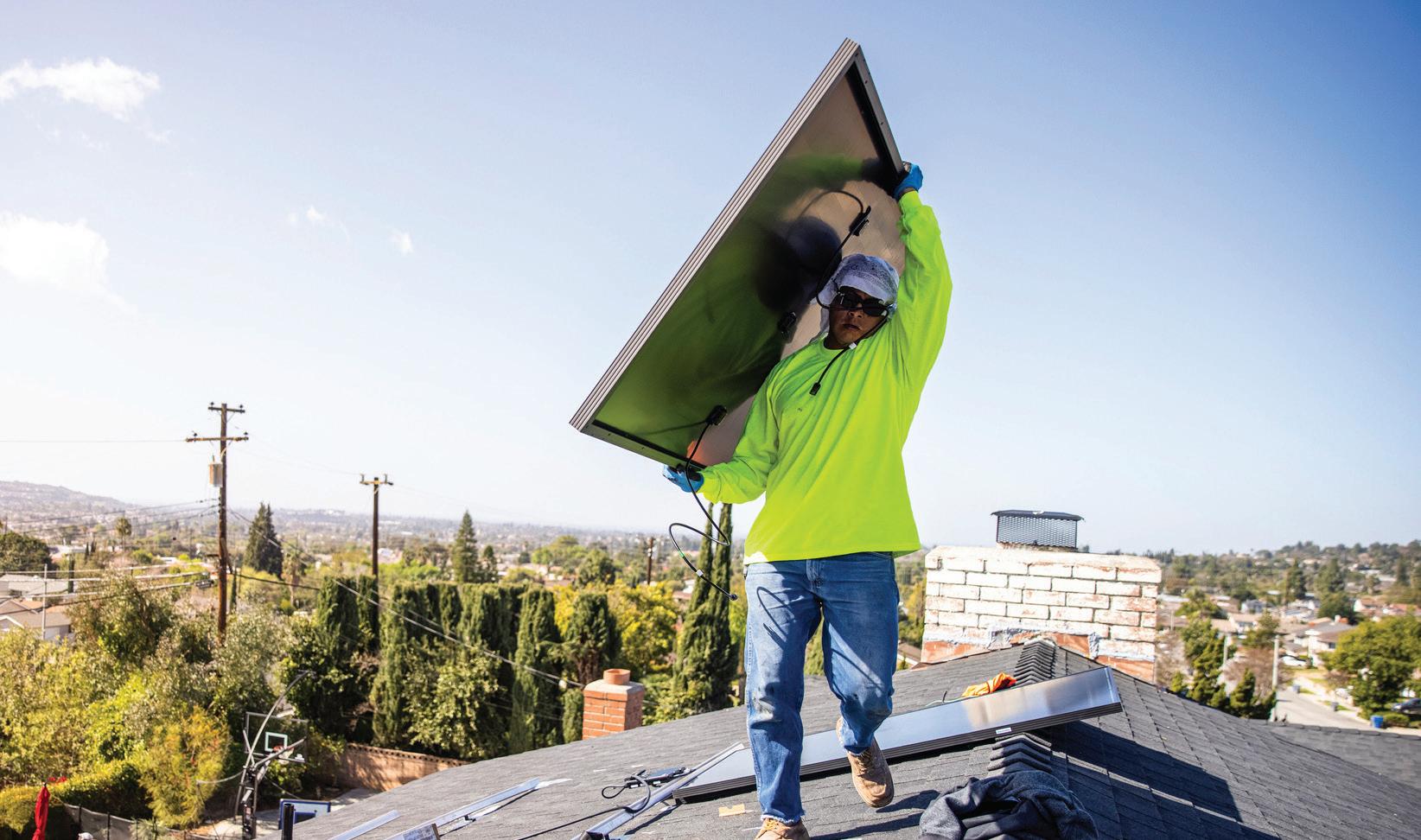
e What is the upfront cost of the system?
e Are there other customers in the vicinity with comparable systems? How much electricity do their systems produce?
e Can the lease be transferred if I sell the house?
e What are MVEC’s interconnection requirements, and who is responsible for meeting them?
e Are the installers certified by the North American Board of Certified Energy Practitioners to install photovoltaic systems?
e When was the company established? How many residential solar arrays has it installed since then? Can the company provide a list of its projects and references for them?
e Ask for all details, promises and claims in writing and take time to review them before signing any contact.
• 1 pound spaghetti or other pasta
slices bacon, chopped
cloves garlic, minced
• 1 teaspoon crushed red chili fakes, or to taste
½ cup dry white wine
• 2 eggs
• ¾ cup grated Parmesan cheese
• Salt and pepper
• 2 tablespoons chopped fresh parsley (optional)
1. Bring a large pot of salted water to boil and add pasta, cooking according to package instructions. Reserve ½ cup pasta water and drain pasta, setting aside to keep warm.
2. While the pasta cooks, in a large frying pan over medium heat, cook bacon until crisp. Remove bacon and set aside.
3. To the same pan, add garlic and red chili fakes and sauté for 1 minute, then add white wine, scraping up any stuck bits on the bottom of the pan.
4. Whisk together eggs and Parmesan, then add pasta, egg mixture, bacon, and reserved pasta water to the frying pan, tossing with tongs to mix and create a creamy sauce. Add salt and pepper to taste and serve with parsley.

Find this and more delicious recipes online at TexasCoopPower.com.
Hurricane season is June 1–Novem ber 30
e Make an evacuation plan. Find activated evacuation routes at drivetexas.org or by dialing 1-800-4529292. Call 211 to fnd out if you live in an evacuation zone.
e Sign up for emergency alerts. Make sure your mobile device is enabled to receive wireless emergency alerts.
e Prepare an emergency supply kit. Learn how to build an emergency kit at ready.gov/build-a-kit
e Review your home insurance policy.
e Register with the State of Texas Emer gency Assistance Registry at stear. tdem.texas.gov or by dialing 211 if you live in an evacuation zone and:
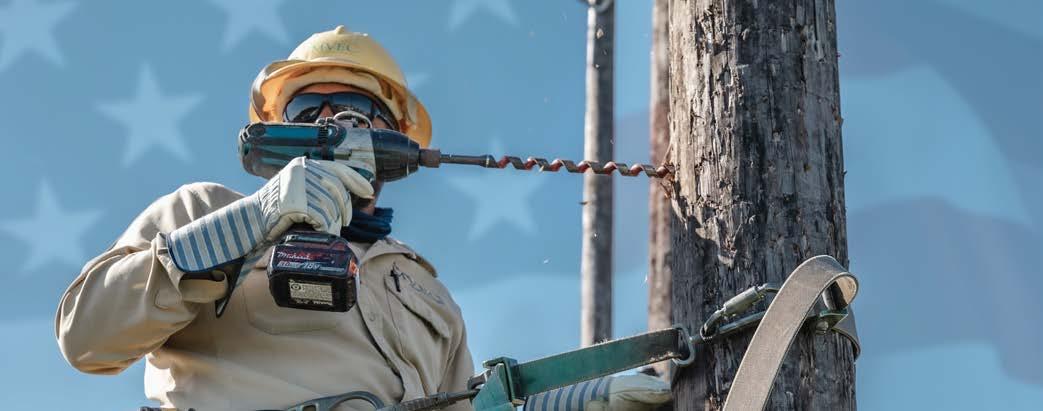
• Have a disability or medical needs and do not have a car or other vehicle to use in an evacuation.
• Have a disability or medical needs and do not have friends or family to help in an evacuation.
Information collected for STEAR is conf dential.

Texas Division of Emergency Management: tdem.texas.gov
Texas Department of State Health Services: texasready.gov
American Red Cross: redcross.org
U.S. Department of Homeland Security: ready.gov
Ofce of Texas Gov. Greg Abbott: gov. texas.gov
Monday, September 5 MVEC ofces will be closed for the holiday.
National Hunting and Fishing Day Saturday, September 24
Créditos al capital retirados: $5.5 millones
Fecha: Octubre 2022
Años retirados en esta ocasión: 2000 y una parte de 2020
Total de créditos al capital retirados desde el inicio por MVEC: $85 millones
Las cooperativas eléctricas no son como otras empresas de servicios públicos, ya que como consumidor y miembro eres dueño de una parte del negocio. Un beneficio de la membresía implica la asignación de ingresos excedentes, llamados márgenes, en forma de créditos de capital. El retiro de créditos de capital es la demostración tangible de tu propiedad en Magic Valley Electric Cooperative. Como cooperativa propiedad de sus miembros, MVEC opera como una empresa eléctrica sin fines de lucro. Esto se logra mediante el retiro de créditos de capital. Este año, el consejo directivo ha aprobado retirar $5.5 millones de créditos de capital a aquellos miembros-consumidores que recibieron servicio eléctrico en 2000 y una porción de créditos de capital de 2020.
Las cooperativas eléctricas como Magic Valley operan al costo, recaudando suficientes ingresos para operar y expandir el negocio, pero sin necesidad de aumentar las tarifas para generar ganancias para accionistas lejanos. Cuando Magic Valley dinero excedente, esos fondos restantes se te asignan a ti y a otros miembros como créditos de capital. Cuando la posición financiera de la cooperativa lo permite, la cooperativa retira, o paga, a los miembros los créditos de capital en forma de cheques. Aún más impresionante es el hecho de que MVEC fue la primera cooperativa en la nación en retirar créditos de capital a sus miembros.

Antes de distribuir los créditos de capital, el consejo directivo en MVEC primero debe considerar la condición financiera de la cooperativa y las necesidades de fondos de capital para los próximos años. El porcentaje utilizado para calcular el retiro anual de los créditos de capital, determinado por el consejo directivo, se fija en un nivel que mantenga la integridad financiera de la cooperativa.
Asignar y retirar el exceso de ingresos a los miembros ayuda a distinguir a las cooperativas. Estamos orgullosos de apoyar a nuestras comunidades regresando dinero a la economía local y a los bolsillos de aquellos a quienes servimos. Esto hace que nuestro modelo de negocio sea especial.
El retiro de los créditos de capital, llamados así porque los miembros aportan capital a la cooperativa para que esta pueda operar y expandirse, depende del estado financiero de la cooperativa. MVEC retiene los créditos de capital asignados para cubrir emergencias, como desastres naturales y otros eventos inesperados, y expandir su sistema eléctrico, lo que puede requerir la construcción de postes y cables a gran escala. Esta acción disminuye la necesidad de aumentar las tarifas o pedir dinero prestado para pagar la infraestructura. Después de muchos años, si las condiciones financieras lo permiten, MVEC puede decidir retirar una cantidad fija de créditos de capital.
Retirar los créditos de capital es solo una forma más en que MVEC te cuida.


Magic Valley Electric Cooperative recientemente asignó los créditos al capital del año 2021 a la cuenta de cada uno de sus miembros, de acuerdo con nuestra política de créditos al capital. Los créditos al capital consisten en la diferencia entre los ingresos y los gastos totales de la Cooperativa. Cada año fiscal, la Cooperativa determina los créditos al capital del año y distribuye los créditos al capital a la cuenta de cada miembro, basado en la factura total de ese año. Durante el 2021, los créditos al capital para cada miembro fueron determinados al multiplicar la factura total de ese año por 0.0618771891543543. Para calcular tus créditos asignados por la cooperativa para el año 2021, simplemente multiplica tu factura anual de consumo de energía (incluye cargos al cliente, cargos de energía y cargos de ajustes de energía, sin incluir impuestos) por 0.0618771891543543. Por ejemplo, si tu factura anual fue de $2,000, solo multiplica $2,000 por 0.0618771891543543, resultando en $123.75 de crédito al capital para el año 2021. Magic Valley Electric Cooperative ha rembolsado a sus miembros los créditos al capital de 1937 a 1999 y créditos al capital parciales de 2000 y 2019. Durante el año 2022, Magic Valley Electric Cooperative devolverá todos los créditos al capital correspondientes a 2000 y una porción de los créditos al capital del 2020. Si tienes cualquier pregunta sobre este cálculo, por favor llama a cualquiera de nuestras oficinas de Magic Valley Electric Cooperative. Este artículo está escrito con la intención de servir como un aviso oficial de asignaciones de créditos al capital para el año 2021.

Te brindamos las siguientes respuestas a algunas preguntas para que tengas una mejor comprensión acerca de los créditos de capital.
¿Cuál es la diferencia entre créditos de capital asignados y retirados?
Los créditos de capital asignados aparecen como entradas en los registros financieros permanentes de la cooperativa y reflejan tu capital o propiedad en MVEC. Cuando se retiran los créditos de capital, se emite un cheque a tu nombre y se reduce tu participación en la cooperativa.
¿Con qué frecuencia recibiré un aviso de asignación?
Recibirás un aviso de asignación anualmente después de que se hayan completado los libros financieros del año anterior.
¿Cómo se calculan los créditos de capital?
La cantidad de créditos de capital que ganas en un año determinado se basa en la cantidad de capital que aportas a la cooperativa a través del pago de tus facturas mensuales.
Cuanto más servicio eléctrico compres, mayor será tu cuenta de crédito de capital, aunque el porcentaje seguirá siendo el mismo. La suma de tus facturas mensuales durante un año se multiplica por un porcentaje para determinar tus créditos de capital.
¿Qué tengo que hacer para empezar a acumular créditos de capital?
Los créditos de capital son calculados por MVEC para cada miembro que compró electricidad durante un año en el que la empresa eléctrica obtuvo márgenes. No se requiere ninguna acción especial para iniciar una cuenta de crédito de capital. Tu membresía activa tu cuenta de crédito de capital.
¿Qué porcentaje de mi factura se devuelve como créditos de capital?
El porcentaje de tu pago total que se asigna como créditos de capital varía de un año a otro, según el éxito de la cooperativa.
Los créditos de capital sólo se asignan para un año en el que MVEC obtiene márgenes. Dado que los créditos de capital son la participación de los márgenes de un miembro, no se asignan créditos para un año sin márgenes. ¿Tengo que ser miembro durante un año completo para obtener créditos de capital?
No. Los créditos de capital se calculan en función de las facturas mensuales de un miembro. Si te facturan el servicio incluso por un mes, acumularás algunos créditos de capital si MVEC obtuvo márgenes en ese año.
¿Qué ocurre con los créditos de capital de un miembro fallecido?
Los cheques de crédito de capital se emiten a nombre de la herencia o beneficiario, una vez que se haya identificado a esa persona.
¿Recibiré un cheque de crédito de capital cada año?
No necesariamente. El consejo directivo debe autorizar un retiro antes de que recibas un cheque. Al considerar un retiro, el consejo analiza la salud financiera de la cooperativa y no autorizará el retiro si Magic Valley no puede solventarlo.
¿Qué sucede con mis créditos de capital cuando me voy del área de servicio de MVEC?
Permanecen en los libros a tu nombre hasta que son retirados. Debes asegurarte de que MVEC tenga tu dirección de correo actual.
¿Quieres ahorrar dinero y electricidad, pero tu tiempo, dinero y paciencia son limitados? Una familia estadounidense promedio gasta alrededor de $2,000 por año en facturas de electricidad de su hogar, según el Departamento de Energía. Gran parte de ese dinero se desperdicia por fugas en ventanas y ductos, elec trodomésticos viejos o sistemas de calefacción y refrigeración ineficientes.
Afortunadamente, hay varias formas sencillas de ahorrar energía sin un compromiso considerable de tiempo y dinero. Estos esfuerzos te ayudarán a ahorrar, ya sea que seas propi etario o alquiles una casa antigua o de nueva construcción, y no tendrás que contratar a un especialista o pedirle el favor a alguien que tenga herramientas para ayudarte.
Mejorar el aislante de tu hogar es un buen lugar para comen zar. La luz del sol, los cambios de temperatura estacionales y las vibraciones del viento pueden aflojar incluso una casa herméti camente cerrada, lo que aumenta las fugas de aire. Es posible que las puertas y ventanas no cierren de manera hermética y los ductos pueden presentar fugas, desperdiciando aire frío y caliente.
Al colocar cinta aislante alrededor de las ventanas y puertas se puede mantener el aire fresco adentro durante los meses cálidos y evitar que el aire frío penetre en el interior durante los meses más fríos. Sellar los espacios alrededor de las tuberías, las rejil las de ventilación de la secadora, los ventiladores y los contac tos eléctricos a sellar la casa y crea una mayor eficiencia.
Remplazar las bombillas incandescentes con LED puede marcar una diferencia significativa y es una de las formas más rápidas de reducir tu factura de energía. Las bombillas LED suelen tener una vida útil operativa de 30,000 a 50,000 horas (alrededor de cinco años y medio) en comparación con las 1000 horas (alred edor de un mes y medio) de muchas bombillas incandescentes.
Según el Departamento de Energía (DOE), puedes ahorrar $75 cada año simplemente reemplazando las cinco bombillas de uso más frecuente de tu hogar con LED.
Manta aislante para ahorrar Instalar una manta aislante alrededor de tu calentador de agua eléctrico puede reducir las pérdidas de calor en modo de espera y ahorrar entre un 7 % y un 16 % en costos de calentamiento de agua. Por una inversión de alrededor de $35 puedes comprar cubiertas o mantas precortadas e instalarlas en aproximada mente una hora. Para evitar un posible sobrecalentamiento, no ajustes el termostato a más de 120 grados en un calentador de agua eléctrico con una cubierta o manta aislante.
Dado que una gran parte de tu factura mensual de energía se destina a calentar y enfriar tu hogar, tiene sentido asegurarte de que el sistema de calefacción y aire acondicionado de tu hogar funcione a un nivel óptimo. Revisar, cambiar o limpiar el fil tro regularmente extiende la vida útil de tu sistema HVAC y te ahorra dinero. Los profesionales de HVAC recomiendan limpiar o reemplazar los filtros del sistema mensualmente.

Toma el control de tus ahorros de energía Echa un vistazo a tu termostato programable. ¿Cuándo fue la última vez que te aseguraste de que estaba ajustado para la temporada actual y el horario de tu familia? Esta es una de las mejores herramientas de ahorro de energía a tu alcance. Te per mite ajustar la temperatura con precisión durante ciertas horas del día.
Muchos modelos te permiten diferenciar entre los horarios de entre semana y los fines de semana, y los termostatos conect ados a Internet pueden aprender tus horarios y ajustarse automáticamente. La mayoría de los modelos vienen con una opción de cancelación, para que puedas realizar ajustes man uales sin perder la programación general.
Magic Valley Electric Cooperative se compromete a ayudar a sus miembros a encontrar opciones de energía accesibles, con fiables y seguras. Aquí hay algunos consejos para ayudarte a evaluar paneles solares.
P: ¿La energía de los paneles solares es una buena opción para mí?
R: Tal vez. Si acaso y cuánto te beneficiarán unos paneles solares residenciales depende de: e Cuánto pagas de electricidad y cuánta usas. e Tu techo.
e Incentivos federales, estatales y locales para el desarrollo solar.
e Tu proveedor de energía solar.
P: ¿Es mi casa adecuada para paneles solares en el techo?
R: Tal vez.
e ¿Cuál es la orientación y la inclinación de tu techo? ¿Tiene sombra?
e ¿Necesitarás reemplazar tu techo en el futuro cercano? Si es así, primero deberás reemplazarlo.
e ¿Has explorado todas tus opciones de eficiencia energética?
P: ¿Los paneles solares me proporcionarán electricidad durante un apagón?
R: No. Sin un sistema de batería y un inversor inteligente, los paneles solares no te proporcionarán energía durante los apagones.
P: ¿Qué debo saber antes de frmar un contrato?
R: Depende de si compras o alquilas los paneles solares. Si estás comprando paneles solares para techo, asegúrate de preguntar lo siguiente:
e ¿Cuál es el costo total del sistema ya instalado?
e ¿Cuál es el período de recuperación de mi inversión? ¿Cuáles
son los supuestos que subyacen a esa estimación? ¿Son esas suposiciones consistentes con mi situación?
e ¿Hay créditos fiscales disponibles? Si es así, ¿cuánto y quién los recibe?
e ¿La empresa ofrece garantías en paneles e inversores?
e ¿Cuáles son los detalles del contrato de servicio?
e ¿Qué tipo de mantenimiento necesitan los paneles solares? ¿Quién es responsable de eso?
e ¿Cuáles son los requisitos de interconexión de MVEC? ¿Seguiré recibiendo una factura de electricidad?
Si estás alquilando los paneles, asegúrate de preguntar:
e¿Cuál es el costo inicial del sistema?
e¿Hay otros clientes en tu sector con sistemas comparables? ¿Cuánta electricidad producen sus sistemas?
e¿Se puede transferir el contrato de arrendamiento si vendo la casa?
e¿Cuáles son los requisitos de interconexión de MVEC y quién es responsable de cumplirlos?
P: ¿Cómo puedo protegerme y proteger mi inversión?
R: Investiga.
e ¿Los instaladores están certificados por el Consejo Norteam ericano de Profesionales Certificados en Energía para insta lar sistemas fotovoltaicos?
e ¿Cuándo se estableció la empresa? ¿Cuántos paneles solares residenciales ha instalado desde entonces? ¿Puede la empresa proporcionar una lista de sus proyectos con refer encias de ellos?
e Solicita todos los detalles, promesas y aseveraciones por escrito y tómate el tiempo para revisarlos antes de firmar cualquier contrato.
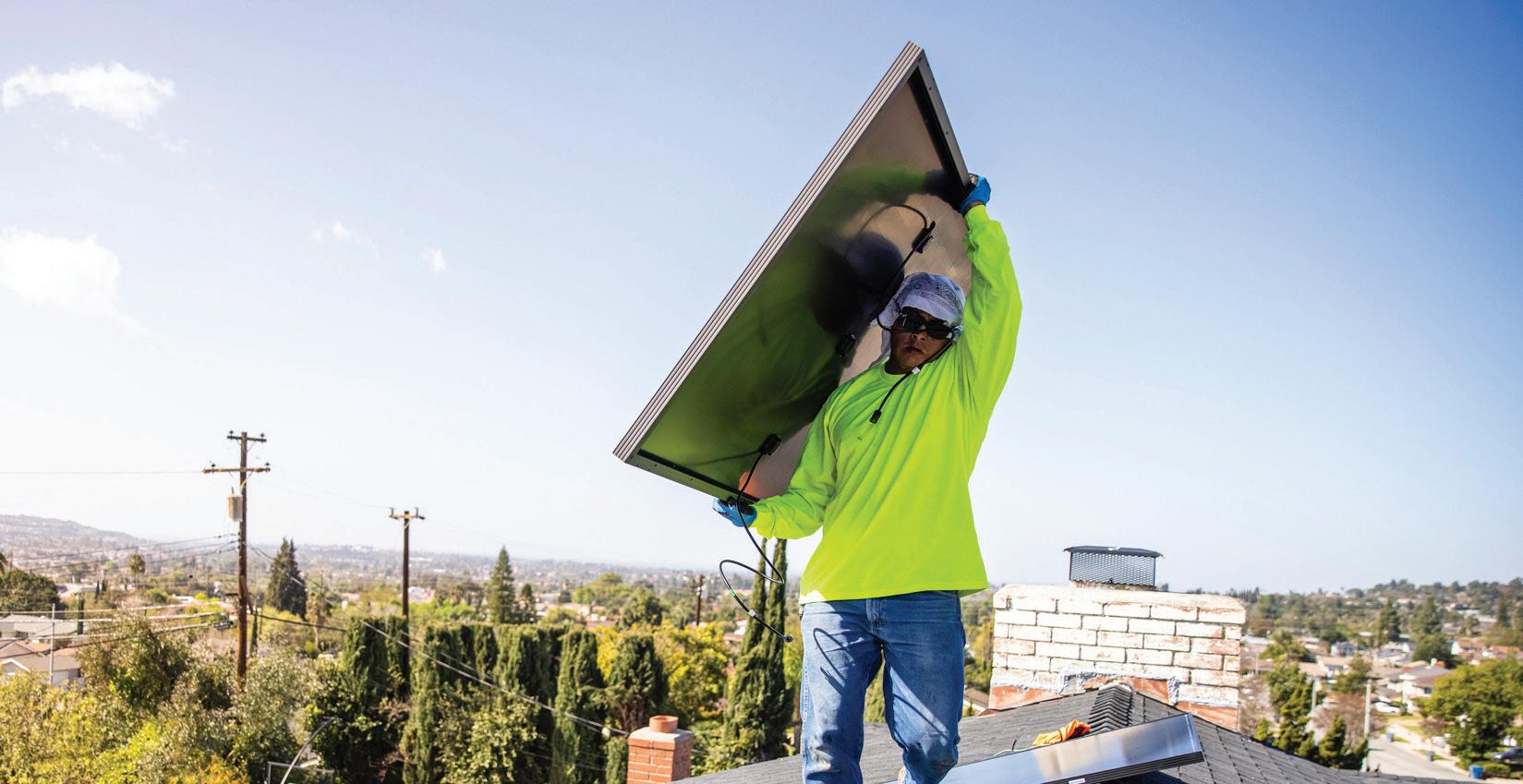
Los árboles embellecen nuestros barrios y, cuando se plantan en el lugar correcto, pueden incluso ayudar a reducir las facturas de energía. Pero el árbol equivocado en el lugar equivocado puede ser un peligro, especialmente para las líneas eléctricas.
Para más consejos sobre la plantación inteligente de árboles en tu comunidad, visita www.ArborDay.org
Altura y extensión mayor de 40 pies, tales como:
Altura y extensión de 25 a 40 pies, tales como:
Evita plantar dentro de los 20 pies de las líneas eléctricas. Cuando sea inevitable, usa solo arbustos y árboles pequeños.
Altura y extensión menor a 25 pies, tales como:
Zona de poda de árboles
Altura máxima del árbol 25 pies.
¡Mantente seguro! Siempre llama al 811 antes de excavar, para localizar posibles líneas eléctricas subterráneas de electricidad, gas y otros servicios.
Fuente:

La temporada de huracanes es del 1 de junio al 30 de noviembre
� Ten un plan de evacuación. Encuentra rutas de evacuación activadas en drivetexas.org o llamando al 1-800-452-9292. Llama al 211 para averiguar si vives en una zona de evacuación.

� Regístrate para recibir alertas de emergencia. Asegúrate de que tu dispositivo móvil esté habilitado para recibir alertas de emergencia inalámbricas.
• 1 lb. de espagueti
• 4 a 6 rebanadas de tocino
• 5 o 6 ajos fnamente picados
• 1 cucharadita de hojuelas trituradas de chile seco
• ½ taza de vino blancoseco
• 2 huevos
• ¾ taza de queso parmesano rallado
• 2 cucharadas de perejil fresco (opcional)
• Sal y pimienta al gusto
1. Pon a hervir agua con sal en una olla grande y agrega la pasta; cocina según las instrucciones del paquete. Reserva ½ taza de agua de la cocción y escurre la pasta. Mantén la pasta caliente y reserva.

2. En una sartén grande a fuego medio, cocina el tocino hasta que esté crujiente. Retira, pica el tocino y reserva.
3. En la misma sartén, agrega el ajo, las hojuelas de chile rojo y saltea durante 1 minuto, luego agrega el vino blanco, raspando los pedacitos pegados en el fondo del sartén
4. En un tazón bate los huevos y mezcla con el queso parmesano. Después agrega al sartén la pasta, la mezcla de huevo, el tocino y el agua reservada de la cocción, revolviendo con pinzas para mezclar y crear una salsa cremosa. Agrega sal y pimienta al gusto y sirve con perejil.
Encuentra esta receta y más en TexasCoopPower.com.
� Prepara un equipo de suministros de emergencia. Aprende a armar un kit de emergencia en ready.gov/build-a-kit
� Revisa la póliza de seguro de tu hogar.
� Regístrate en el Registro de Asistencia de Emergencia del Estado de Texas en stear. tdem.texas.gov o marca al 211 si vives en una zona de evacuación y:
� Tienes una discapacidad o necesidades médicas y no tienes un automóvil u otro vehículo para usar en una evacuación.
� Tienes una discapacidad o necesidades médicas y no tienes amigos o familiares para ayudarte en una evacuación.
La información recopilada para STEAR es confdencial.
Recursos en línea de preparación para huracanes
División de Manejo de Emergencias de Texas: tdem.texas.gov
Departamento Estatal de Servicios de Salud de Texas: texasready.gov
Cruz Roja Americana: redcross.org
Departamento de Seguridad Nacional de EE. UU.:: ready.gov
Ofcina del gobernador de Texas Greg Abbott:: gov.texas.gov
Día del trabajo Lunes, 5 de septiembre. Las ofcinas de MVEC permanecerán cerradas..
Día nacional de la caza y la pesca Sábado, 24 de septiembre.
The answer: Although tremendous strides have been made in Hearing Aid Technology, those cost reductions have not been passed on to you. Until now...














The MDHearing™ VOLT uses the same kind of technology incorporated into hearing aids that cost thousands more at a small fraction of the price.






Over 800,000 satis ed MDHearing customers agree: High-quality, digital, FDA-registered rechargeable hearing aids don’t have to cost a fortune. The fact is, you don’t need to spend thousands for a hearing aid. The MDHearing VOLT is a medical-grade, digital, rechargeable hearing aid offering sophistication and high performance; and works right out of the box with no time-consuming “adjustment” appointments. You can contact a licensed hearing specialist conveniently online or by phone — even after your purchase at no cost. No other company provides such extensive support. Now that you know...why pay more?





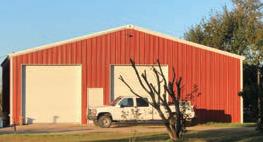
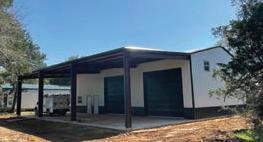
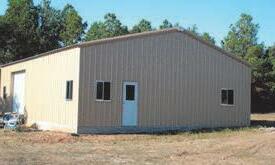






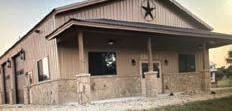
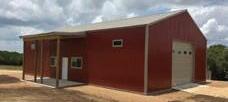


Remember when you were a child and got your first bicycle? I do. It gave me a sense of independence . . . I felt like I could go anywhere, and it was so much easier and more enjoyable than walking. Well, at my age, that bike wouldn’t do me much good. Fortunately, there’s a new invention that gives me the freedom and independence to go wherever I want . . . safely and easily. It’s called the Zoomer, and it’s changed my life.
My Zoomer is a delight to ride! It has increased my mobility in my apartment, my opportunities to enjoy the out-of-doors, and enabled me to visit the homes of my children for longer periods of time. The various speeds of it match my need for safety, it is easy to turn, and I am most pleased with the freedom of movement it gives me.
Sincerely, A. Macon, Williamsburg, VA
After just one trip around your home in the Zoomer, you’ll marvel at how easy it is to navigate. It is designed to maneuver in tight spaces like doorways, between furniture, and around corners. It can go over thresholds and works great on any kind of floor or carpet. It’s not bulky or cumbersome, so it can roll right up to a table or desk– there’s no need to transfer to a chair. Its sturdy yet lightweight aluminum frame makes it durable and comfortable. Its dual motors power it at up to 3.7 miles per hour


and its automatic electromagnetic brakes stop on a dime. The rechargeable battery powers it for up to 8 miles on a single charge. Plus, its exclusive foldable design enables you to transport it easily and even store it in a closet or under a bed when it’s not in use.
Folds to 12” in seconds


Why spend another day letting mobility issues hamper your lifestyle? Call now and find out how you can have your very own Zoomer.




Fueled by booze and a legendary cocktail napkin, Southwest Airlines took of and never looked back
 BY W.F. STRONG • ILLUSTRATION BY SARAH FERONE
BY W.F. STRONG • ILLUSTRATION BY SARAH FERONE
THIS LEGENDARY STORY starts off like many good stories do: Two men walked into a bar.
They were in San Antonio, and this was more than 55 years ago. And, OK, it was actually a restaurant with a bar. They ordered drinks and perhaps hors d’oeuvres. As the story goes, one of the men grabbed a cocktail napkin, took out his pen and said to the other, “Here’s the plan.”
He then drew a simple triangle on the napkin. At the apex of the triangle he wrote “Dallas.” The bottom left he labeled “San Antonio.” And on the remaining corner: “Houston.”
“There—that’s the business plan,” he said. “Fly between these cities several times a day, every day.” And that is the
tale of how Southwest Airlines began, on a simple napkin in a bar in San Antonio in 1966. The two men were Rollin King and Herb Kelleher.
King was a pilot and businessman and Kelleher a lawyer. King would become a managing director of the company that he and Kelleher co-founded in March 1967 and that first took to the sky in June 1971. Kelleher would go on to serve as CEO from 1981 to 2001. At the Southwest headquarters at Dallas Love Field, there’s a bronze replica of the original napkin and a plaque with this exchange: “Herb, let’s start an airline.” “Rollin, you’re crazy. Let’s do it!”
Beyond the sizzle, there was genuine business genius in Southwest’s efficiencies: peanut fares and the 10-minute
Listen as W.F. Strong narrates this story on our website.
turnaround, which had never been achieved before. To date, Southwest has flown more than 2 billion passengers without a crash and now serves more than 100 destinations in the U.S. and 10 countries.
Perhaps the coolest story in Southwest Airlines’ history, and relatively unknown, was its fare war with now-defunct Braniff Airlines in early 1973—only a year after a struggling Southwest had just $143 in its bank account. Braniff offered $13 fares for its Houston-Dallas route as a means of “breaking” the upstart airline.
Southwest responded by offering passengers a $13 fare or a $26 fare that included a free bottle of Chivas scotch, Crown Royal whiskey or Smirnoff vodka. According to airline lore, for the two months before Braniff surrendered, Southwest was Texas’ biggest distributor of premium liquor as business travelers expensed the $26 tickets and kept the booze for themselves.
Not long before he died in June 2014, King confessed that the napkin story wasn’t entirely true but that it was a “hell of a good story.”
It was too late: The myth had become more powerful than the reality.
As the saying goes, when the legend becomes fact, print the legend. D
We instituted Friday night pizzas when my kids were small, and it’s been a great way to get creative in the kitchen. Whether you are sticking with reliable classics like pepperoni and mushroom or branching out to new toppings, it’s hard to resist pizza. This take was inspired by my love of Mexican street corn.

½ cup sour cream
2 tablespoons mayonnaise
2 tablespoons lime juice, plus more to taste
1 teaspoon chili powder
½ teaspoon salt
1 ball pizza dough or premade crust
Olive oil
1 cup shredded mozzarella
½ pound Mexican chorizo, cooked and drained
¾ cup corn kernels
¼ cup pickled jalapeño peppers
½ cup crumbled cotija cheese
Chopped fresh cilantro, for garnish
1. Preheat oven to 450 degrees.
2. In a bowl, mix sour cream, mayonnaise, lime juice, chili powder and salt until well combined. Taste and adjust seasonings, adding more lime juice or water to thin if desired.
3. Lightly grease a pizza pan and roll out pizza dough on top. Brush olive oil on top of dough, then spread sour cream mixture on top. Layer on the mozzarella, chorizo, corn and jalapeños. Sprinkle cotija over the top.
4. Bake pizza 10–15 minutes, until crust is browned and mozzarella is melted. Garnish with fresh cilantro.
Follow along with Megan Myers and her adventures in the kitchen at stetted.com, where she features a recipe for Brussels Sprouts Pizza With Bacon and Pear.
3 tablespoons olive oil
1 large red or yellow onion, sliced
½ teaspoon salt, plus more to taste
1 teaspoon sugar
2 tablespoons balsamic vinegar, divided use
⅛ cup (¼ stick) butter
2 tablespoons four
1 clove garlic, minced
¾ cup milk
Salt and pepper, to taste
3 tablespoons fg jam or marmalade
1 package unbaked pizza dough
 DIANE MUDD GUADALUPE VALLEY EC
DIANE MUDD GUADALUPE VALLEY EC

This pizza is a great option for those who are looking for a low-carb alternative. Mudd recommends making your own lowcarb pizza sauce. These mini pizzas are also delicious cold the next day.
1½ cups almond four
1 tablespoon baking powder
½ teaspoon garlic powder
2 eggs
3 cups shredded mozzarella cheese
2 tablespoons sour cream
⅛ cup (¼ stick) butter
1 pound ground pork
Salt and pepper, to taste
1 tablespoon fennel seed, crushed
1 tablespoon Italian seasoning
1 cup chopped white button mushrooms
¼ cup pickled jalapeño peppers, chopped
¼ cup chopped olives
1 cup low-carb pizza sauce
1 cup shredded mozzarella cheese
1. CRUST Preheat oven to 375 degrees.
Line an extra-large baking sheet or two standard baking sheets with parchment.
In a medium bowl, combine almond four, baking powder, garlic powder and eggs.
Set aside.
2. In a large microwave-safe bowl, combine mozzarella, sour cream and butter. Microwave 1–2 minutes, stirring every
The Williams family began a weekly cooking challenge during the pandemic while their children lived in diferent cities. A prompt of marmalade led to the creation of this unique pizza featuring fg, bacon and asparagus.

7 slices bacon, cooked crisp and chopped
8 ounces asparagus, cooked and cut into small pieces
6 ounces mozzarella cheese, shredded
2 ounces Parmesan cheese, shredded
1. Preheat oven to 425 degrees.
2. In a sauté pan over medium heat, heat olive oil. Add onions and sprinkle with salt. Sauté 10 minutes, then add sugar and continue to sauté until onions begin to caramelize, about 5–10 minutes. Add a tablespoon or two of water as needed during cooking to keep the onions from drying. Stir in 1 tablespoon balsamic vinegar and set the onion topping aside.
3. In a small saucepan, to make sauce, melt butter over medium heat. Add four and garlic and cook, whisking constantly, for 1 minute. While whisking, slowly pour in milk. Bring to a boil, whisking constantly, for about a minute until thickened, then remove from heat. Season with salt and pepper to taste.
4. In a small bowl, combine fg jam and remaining tablespoon of balsamic vinegar. Heat in microwave 15 seconds and set aside.
5. Roll out pizza dough onto pan and bake 4 minutes. Remove from oven and spread sauce evenly over the top. Layer on toppings and drizzle on warmed balsamic jam. Return pizza to the oven for 7–10 minutes, until crust is golden and cheese is melted.
Whether you stick with classic favors or go wild, do you make the best cupcakes around? Show us. Submit your recipes on our website by September 10 for a chance to win $500.
30 seconds, until melted. While the cheese is still hot, add the almond four mixture and stir or knead with your hands until a uniform dough forms. Form dough into a ball and divide it into 8 equal pieces. Roll each piece into a ball, place on prepared baking sheet and fatten to about ¼-inch thick. Bake for about 10 minutes, then remove and pop any bubbles with a fork. Return to oven for 2 minutes, until golden-brown.
3. TOPPING Heat a large sauté pan over medium-high heat. Season ground pork generously with salt and pepper, fennel seed, and Italian seasoning. Brown the resulting sausage, breaking it into small pieces. Add mushrooms, jalapeños and olives, stirring and continuing to cook until mushrooms are soft.
4. To prepare, divide sauce equally among pizza crusts. Sprinkle on mozzarella, then arrange meat mixture on top (you might have extra remaining). Bake 5–8 minutes, until cheese has melted.
8


Pizza for breakfast? Why not! Burk takes all your favorite breakfast ingredients and combines them for one fantastic pizza. Watch the crust carefully to prevent it from overbrowning.
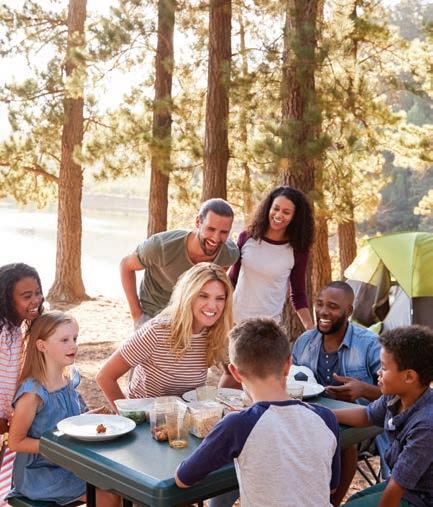

8 ounces (1 package) refrigerated crescent rolls, separated
2 cups frozen hash browns with peppers and onions (about half a
28-ounce package), slightly thawed
1 pound ground sausage, cooked and drained
4 slices Canadian bacon, diced (optional)
4 ounces diced green chiles, drained 4 ounces sliced mushrooms
1½ cups shredded cheddar cheese
5 eggs, beaten
1. Preheat oven to 375 degrees. Arrange crescent rolls to cover the bottom of an ungreased pizza pan, pressing seams together and pinching edges to form a slight rim.
2. Spread hash browns evenly over crust, then sprinkle on sausage, Canadian bacon, chiles and mushrooms. Evenly top with shredded cheese, then carefully pour eggs over the whole pizza.
3. Bake 30–40 minutes, until crust is browned and cheese is melted.
SERVES 4–6
Not enough pizza night options? Check our website for dozens more pleasing pies.






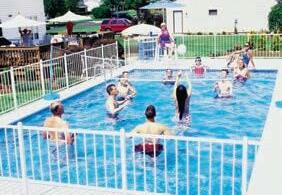
Port Arthur museum shows of the region’s global infuence
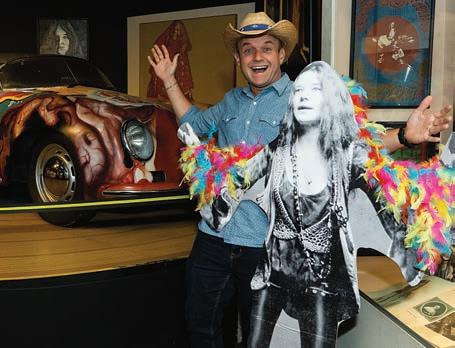 BY CHET GARNER
BY CHET GARNER
GROWING UP in Southeast Texas, it was hard to appreciate the unique culture and people of the Gulf Coast. It wasn’t until I moved to Austin and tried to order barbecued crabs at a restaurant and play zydeco music on the jukebox that I realized my upbringing was a bit different.
A recent trip to the Museum of the Gulf Coast in Port Arthur not only reaffirmed that belief but helped me realize that without the people of the Coastal Bend, Texas and even the U.S. wouldn’t be the same.
When I stepped into this massive downtown museum, I felt like I had stepped into a life-size textbook. From Karankawa artifacts to the Spindletop oil boom, the museum captures the unique history of the Gulf Coast. There’s a 125-foot mural depicting moments like the shipwreck of Álvar Núñez Cabeza de Vaca right next to a record-setting race car. Everybody can find something interesting here.
Upstairs are four rooms dedicated to the staggering crowd of people born in this region who have gone on to influence the world—governors and artists, actresses and war heroes, all hailing from this crescent of swamp and coastal prairie. The sports room was especially awesome, with tributes to famous coaches like Bum and Wade Phillips, along with Cowboys legend Jimmy Johnson.
The music room flooded my mind with great tunes from artists like the Big Bopper, ZZ Top and George Jones. However, no artist draws more visitors than the “Pearl”—Janis Joplin—who was born in Port Arthur in 1943. Folks come to see a replica of her classic Porsche Cabriolet and many of her gold records.
It just goes to show: Folks from small towns can go on to have a big influence on the world. I left inspired—and hungry for Cajun food. D
ABOVE Chet channels some of Janis Joplin’s cosmic blues at the Museum of the Gulf Coast in Port Arthur.
Chet fnds a piece of his heart and his roots at the museum. See his latest video on our website, and watch all his Texplorations on The Daytripper on PBS.
Call ahead or check an event’s website for scheduling details.
San Angelo [8–11] Arthur Stillwell's Dream of Steam, (325) 486-2140, sanangelorailway.org
Caldwell [9–10] Creative Memories Quilt Guild’s Quilt Show, (512) 924-8716, englemann@suddenlink.net
Ennis [9–10] Patriot Day BBQ Bash, (972) 878-2625, ennis-chamber.com
Fairfeld [9–10] Big T Memorial State Championship BBQ Cookof, bigtmemorial.com
Brownwood [9–11, 16–18] Noises Of, (325) 998-2801, brownwoodlyrictheatre.com
Bartlett Metaphysical Night Gallery and Paranormal Tour, (512) 203-5561, austinghosttours.com
Caldwell Kolache Festival, (979) 567-0000, burlesoncountytx.com
Plano Twenty Hounds: Downtown Sessions, (972) 941-5600, visitplano.com
Brenham [10–17] Washington County Fair, (979) 836-4112, washingtoncofair.com
Yorktown Holy Cross Festival, (361) 564-2893, holycrossyorktown.net
Lufkin [15–18] Texas State Forest Festival, (936) 634-6644, texasforestfestival.com
Nacogdoches [16–17] Old Town Rig Down, (936) 615-0580, oldtownrigdown.com
Amarillo [16–24] Tri-State Fair & Rodeo, (806) 376-7767, tristatefair.com
Kerrville [16–17, 23–25, 30–Oct. 2] Leading Ladies, (830) 896-9393, caillouxperformingarts.com
Anson Party in the Park, (325) 823-3259, ansonchamberofcommerce.com
Conroe Montgomery County Master Gardeners Fall Plant Sale, (936) 539-7824, mcmga.com

Plano North Texas Pride Festival, (469) 694-4834, visitplano.com
San Angelo Concho Valley Archeology Fair, (325) 657-4444, fortconcho.com
Taylor Texas Mamma Jamma Ride, (512) 297-7740, mammajammaride.org
Gladewater [17–18] Arts and Crafts, (903) 845-5501, gladewaterartsandcrafts.com

Kyle Doggie Dip, (512) 262-3939, cityofkyle.com
Stonewall Seed Stomp, (830) 644-2252, tpwd.texas.gov/state-parks/ lyndon-b-johnson
Kerrville [19–25] Paint Kerrville!, (830) 895-2911, kacckerrville.com

We pick events for the magazine directly from TexasCoopPower.com. Submit your December event by October 1, and it just might be featured in this calendar.
Event
19th - 25th, 2022 www.kacckerrville.com
—


FROM $9,995
Don’t let Mom or Dad spend $20K on a walk-in tub. Call us today to nd the perfect custom solution for you. We service all of Texas. Visit our showroom at 311 Kings Plaza in Granbury.
-
POWERDIAL™
puts pressure control at



fingertips!
CLEANING TOOLS make washing anything FAST and EASY!
POWER BROOM cleans decks and driveways up to

faster!
Balloon and Music Festival Paris, September 9–12 (903) 517-2830 parisballoonandmusicfestival.com
The skies over North Texas are flled with hot air balloon fights and the evenings with food trucks, music, a kids zone, vendors and a live painting competition at this visually stunning festival.

San Marcos Downtown Mermaid Promenade, (512) 825-2819, visitsanmarcos.com
Comanche [24–25] Pow Wow, (325) 356-3233, comanchechamber.org
Granbury [24–25] Spooky Spectacle, (817) 559-0849, visitgranbury.com
Ingram [24–25] Texas Arts and Crafts Fair, (830) 367-5121, txartsandcraftsfair.com
Serbin Wendish Fest, (979) 366-2441, texaswendish.org
Graford [30–Oct. 1] Possum Fest BBQ and Chili Cook-Of, (940) 779-2424, possumkingdomlake.com

Plano [22–25] Balloon Festival, (972) 867-7566, planoballoonfest.org
Kerrville [22–Oct. 29] Roundup Exhibition and Sale, (830) 896-2553, museumofwesternart.com
Brenham Suzy Bogguss, (979) 337-7240, thebarnhillcenter.com
DeKalb Saturday in the Park, (903) 277-3519, dekalbtexasoktoberfest.org

Fredericksburg Back to the Basics, (830) 997-3224, backtothebasicsfestival.com
George West Mariachi Las Alteñas, (361) 436-1098, dobie-westtheatre.com
Lakehills Medina Lake Cajun Festival, (830) 460-0600, cajunfestival-medinalake.com
Mason Old Yeller Day, (325) 347-5446, mason.ploud.net
Fredericksburg [30–Oct. 2] Lone Star Gourd Festival, texasgourdsociety.org
Bowie Chicken and Bread Days Heritage Festival, (940) 872-6246, cityofbowietx.com
La Grange Oktoberfest on the Square, (979) 968-3017, visitlagrangetx.com
Lubbock [1–2] Miniaturists of Lubbock Show and Sale, (806) 885-4306, miniaturistsofubbock.org
Plano [1–2] Fall Plano Train Show, (972) 941-5840, visitplano.com
Kerrville [7–16] Welcome Home Fest, (830) 257-3600, kerrvillefolkfestival.org
Ingram [7–8, 14–16, 21–23] The Legend of Sleepy Hollow, (830) 367-5121, hcaf.com
Out of the shadows and ready to shine, these photos are downright illuminating. Don’t get left in the dark—join us as we cast a spotlight on Texas beauty.
CURATED BY GRACE FULTZThe East Texas Stampede equestrian drill team at the rodeo in Mesquite.
BRYAN TEXAS UTILITIES Yuccas at White Sands National Park.

“You can’t take the country out of a Texas girl raising her livestock.”
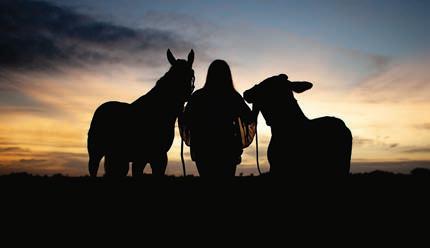
The Texas Folklife Festival in San Antonio features historic reenactors in full period dress.


WHEN I WAS A KID in the 1970s, the frame of a small school bus sat rusting in our neighbor’s pasture. I asked my mother about it, and she told me that in the late 1930s, the neighbor, John Christian, had bought the bus.
So it was his. My mouth dropped in awe that an African American man in our rural Cherokee County community had bought a school bus.
That triggered my interest in school bus history as I watched bright yellow buses, large and small, coming and going, picking up and dropping off children as the school year began. They were headed home, to school or to their extracurricular activities.
I found out that in the second half of the 19th century, students who lived beyond walking distance of their school
were typically driven in the family wagon or a horse-drawn repurposed farm wagon with a tarpaulin stretched above the passenger seating.
It wasn’t until the 1950s that buses operated by private drivers were widely replaced by district-owned fleets.
During the 1940s, many rural schools only went through the eighth grade. Beyond that, students often had to travel longer distances to their nearest high school. Very few families in rural communities had cars at that time. People like Christian—who made sure the school-age children in their farming areas had transportation to school— were so important.
“Oh yeah, Mr. John Christian bought a school bus, and he hired my father, Matthew Allen, to drive the bus to pick up the kids in the Green Chapel area,” Evelyn Allen, a former resident of the community, told me. “They all knew Mr. Christian.”
While the buses themselves have improved over the years, the experience is much the same. Schoolchildren—then and now—wait and anticipate the rumbling bus coming to their stop during the early dawn hours.

The bus rides to and from team sports, competitions and performances are the source of many friendships, laughs and arguments among the riders. Most riders can recall favorite drivers who stand out in their memories of their school days— like those who made them feel special or let them have safe fun.
Even the strictest drivers can be fondly remembered. Like one of my favorite drivers, J.C. Jones. My cousins and I knew he did not play. He’d look up in that wide rearview mirror and yell back to us in a commanding tone: “Y’all better set down back there.” And we’d immediately flop down in our seats.
Much gratitude is due to those bus owners, faithful drivers, mechanics and all who keep the buses rolling. Your work is important. D
Hail to the bus drivers, who help students get ahead






